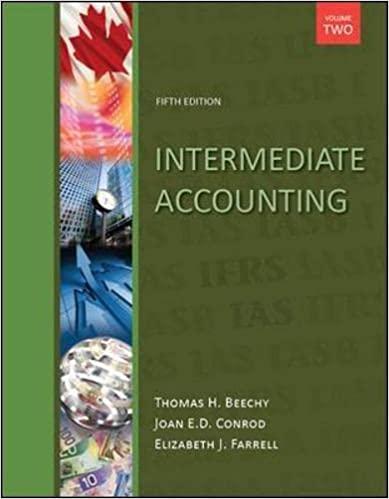Philip Roth is just finishing his first week as chief financial officer of MTC. He was recruited
Question:
Philip Roth is just finishing his first week as chief financial officer of MTC. He was recruited from Atkins Consulting to replace the former CFO who had been relieved of his duties when major errors and shortfalls in certain inventory and trading accounts were discovered.
MTC is the current corporate name of an enterprise once known as Midlands Telephone Corporation. Midlands had been providing landline telephone service to several midcountry provinces for most of the 20th century and into the 21 st century. The company had been reorganized in the early 1980 s to separate its regulated telephone service from its more adventurous, non-regulated endeavours. The company had grown to a billion-dollar enterprise with investments in several fields, acquired largely through purchases of other going concerns. The core of MTC's earnings, however, remained in the telephone business.
Early this year, the company lost an appeal to the regulatory agency to protect its base market. The agency had ruled that MTC would no longer have a protected monopoly for landline telephone service in its service region, but that other companies (including TV cable companies and wireless companies) could compete for local telephone service. MTC had an enormous asset base, built up over the years in order to generate the highest possible earnings. As is typical in regulated industries, the company had been permitted to set rates that would enable it to earn a set rate of return on its asset base-the larger the asset base, the higher the earnings. The company capitalized all betterments and replacements, and used the longest possible depreciation periods for its capital assets. With the advent of deregulation, the company would no longer be able to generate such an attractive rate of return on its assets, which raised questions in the financial press about the "overvaluation" of its capital asset base.
This regulatory ruling was only one of several blows that the company had suffered in recent months. A previous loss of protection in the long-distance telephone market had caused MTC's earnings to drop sharply, with the result that MTC had the first loss of its history in its telephone business last year. The loss was expected to be even larger in the current year.
To make matters worse, rumours began to circulate in the financial community that MTC was covering up huge losses in one of its non-telephone divisions, one that manufactured copper wire and electrical switching devices. Copper is a world-traded commodity that has a very volatile price, and most companies that use copper are engaged in hedging operations to protect themselves. MTC's Board of Directors hired Atkins Consulting to find out if there was any truth to the rumours, and, unfortunately, there was. Managers and traders in the division had been speculating heavily in copper, and had covered up massive trading losses over the past three years, some of which were hidden in fictitious inventory records. MTC's copper inventory (and other accounts) turned out to be overstated by over \(\$ 100\) million.
The company's employees were also becoming restive. In its latest labour negotiations, just completed last month for the telephone operations, the company had to promise redundancy protection for employees if the company was required to downsize its telephone operations. The company agreed not to lay off any employees with more than 15 years of service, although the company would have the right to place them in a "redundancy pool" to be redeployed anywhere else in the company that they might be useful. Employees who are laid off will be given a severance package amounting to two months' salary plus one month's additional salary for each year of service. The severance would not be given as a lump sum but would be paid to the individual over a one-year period following the departure. Furthermore, the new labour agreement provided that pension benefits for any laid-off employee would automatically vest, even if the employee hadn't reached the point at which the benefits would normally become vested. The remaining employees would benefit from a significant enhancement of their defined benefit pension plan; employees' benefits would increase by between \(10 \%\) and \(20 \%\), depending on the length of service.
The company had just served notice to the first 1,200 of its employees that they would be laid off, but the Board of Directors expected that at least 5,000 employees would be laid off over the next two years.
Philip Roth was one of the consultants who uncovered the rogue copper trading. He had been hired as CFO of MTC to "clean up the mess" in the financial reporting and control areas. One of his first responsibilities was to recommend to the audit committee of the Board of Directors how the company should report the impacts of its recent changes in fortune in its financial statements for the current year. Although the company was only midway through the fiscal year, the Board and CEO would have to discuss financial projections in a public forum, and particularly with the investment analysts who closely followed the company's performance.
Required:
Assume that you are Philip Roth. Prepare a report to the audit committee.
Step by Step Answer:






